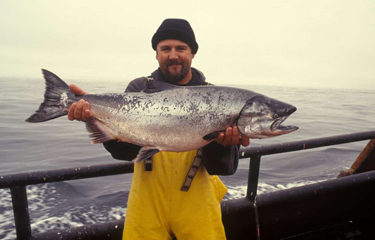Transparent Path launches seafood supply chain audit service

Seattle, Washington, U.S.A-based technology firm Transparent Path launched a new supply chain audit service at the 2022 Seafood Processing North America in mid-March in Boston, Massachusetts, U.S.A.
The company also offers a software platform that uses IoT sensors, cloud collaboration, and artificial intelligence to provide manufacturers, processors, logistics partners, and retailers of seafood and other perishables with the ability to see and act upon supply chain issues in real-time.
Transparent Path’s supply chain auditing service focuses on reducing risk and inefficiencies in food supply chains. It uses interviews with executives, team members, other stakeholders, and suppliers to identify pressure points that are causing bottlenecks or extra costs, providing a baseline report that examines the issues and provides recommendations for workflow and operational changes to reduce supply chain friction. The Transparent Path audit also provides metrics around the environmental and social impacts created by the resulting operational changes, offering them in a format usable for stakeholder reporting.
Transparent Path CEO Eric Weaver, who previously headed up the Xerox Customer Experience Practice, said the start-up created the auditing service in response to the issues he saw arising in the supply chain as a result of pandemic-related disruption. He said seafood companies are facing supply-chain “chaos” exacerbated by the pandemic’s knock-on effects of port quarantines, labor shortages, and equipment shortages,
“We feel the pain that supply chain execs are going through right now,” Weaver said. “Our audits can alleviate some of that, through real-world, actionable insights that can inform management teams. They’ll also be priced considerably lower than what a Big 4 consulting firm might charge. And while audits are snapshots, our recommendations are evergreen. We don’t just want to create a one-time report that ages rapidly. We’ll also provide a scorecard for the audit that will standardize metrics and approach. This will allow our customers to conduct their own audits in the future.”
Other executives at Transparent Path include Lauren Adler, the company’s director of product, who previously worked as head of supply chain integration for Amazon, and Paulé Wood, a former last-mile specialist at Amazon.
“The current conditions make it incredibly difficult for executives to take a step back and identify areas at risk,” Adler said in a press release. “Supply chain teams need help from senior management to hire the appropriate resources and get their lives back. That’s where we can help. By taking an objective, outside look at supply chain operations, we can identify, justify, and propose fixes. These fixes can reduce the pressures we’re seeing right now. The bottom line is that we can find ways to reduce the stress executives are under, and create a positive impact on planet, people, and profit.”
Weaver said Transparent Path’s services are designed to fulfill its mission of keeping food and capital out of landfills, and that they can create lasting improvement to seafood industry practices.
“The need to demonstrate traceability in the seafood sector is a growing concern for producers, processors, brokers, distributors, and retailers. Corporations are under pressure to guard against illegal fishing, overfishing, unethical sourcing, bad animal husbandry, and bycatch. Food safety, recall efficiencies, and new traceability regulations are also key concerns,” he said. “These emerging traceability platforms gather and utilize traceback data, which is great. But it only covers part of the issue.”
Photo courtesy of NOAA






Share